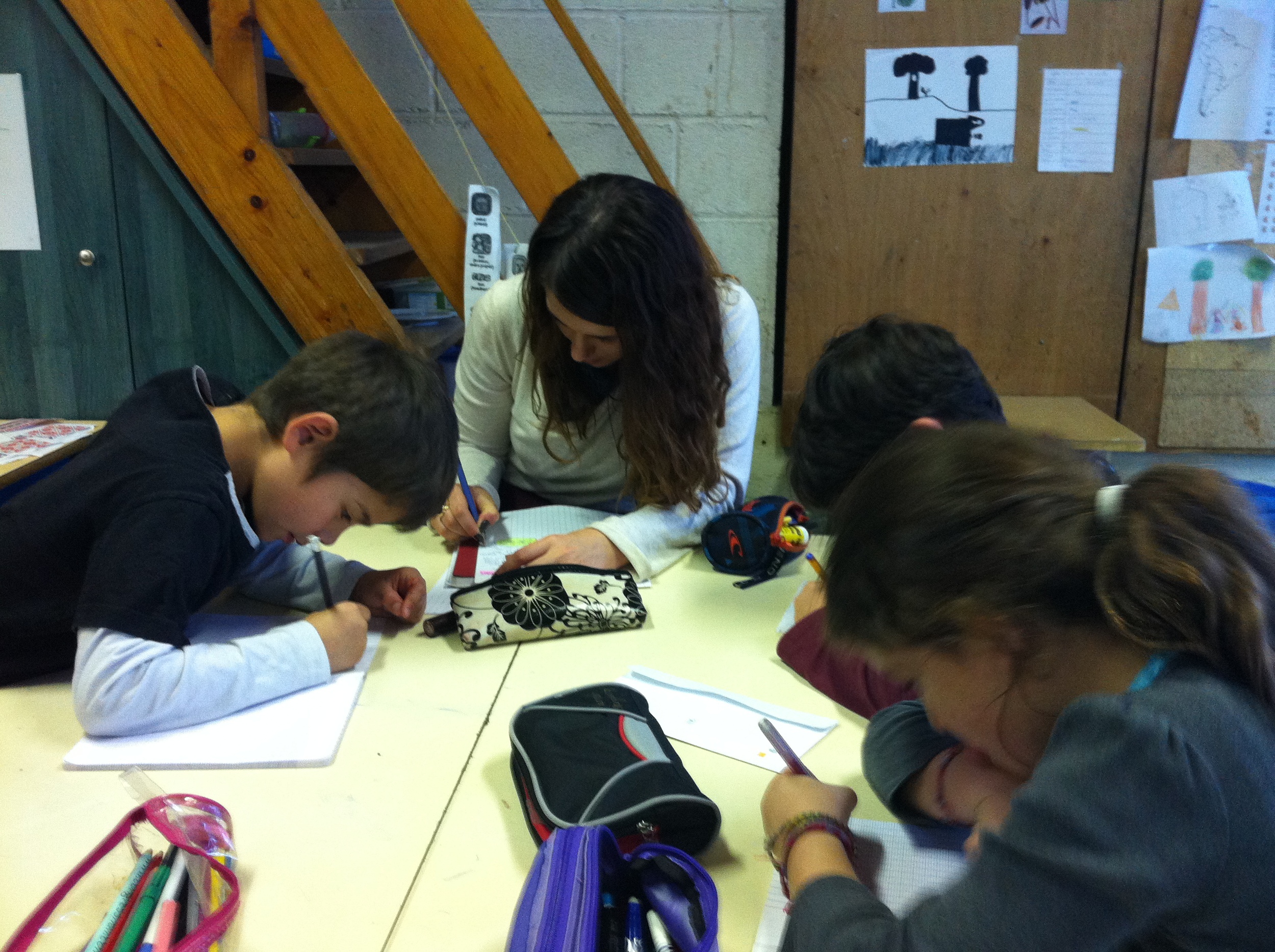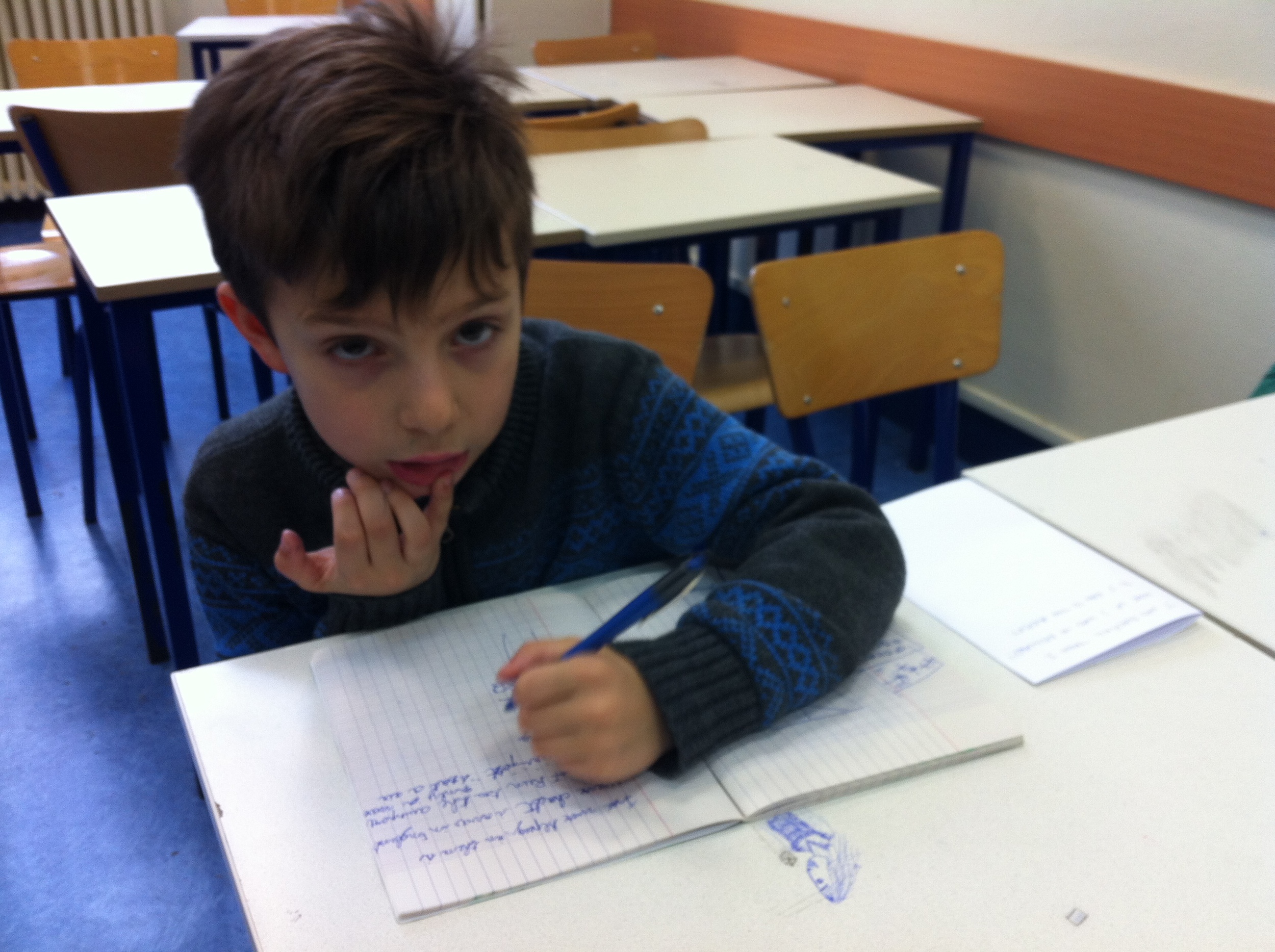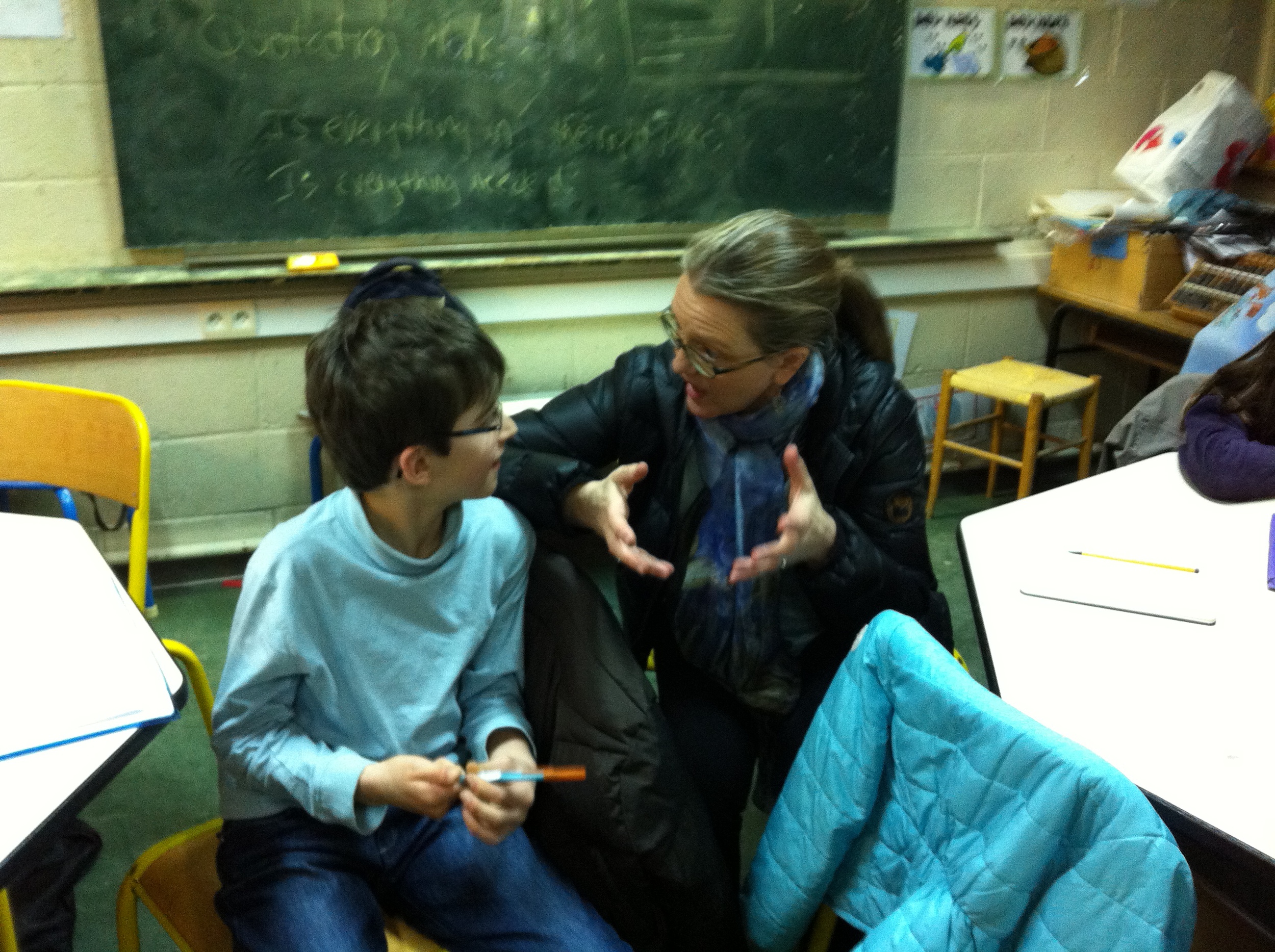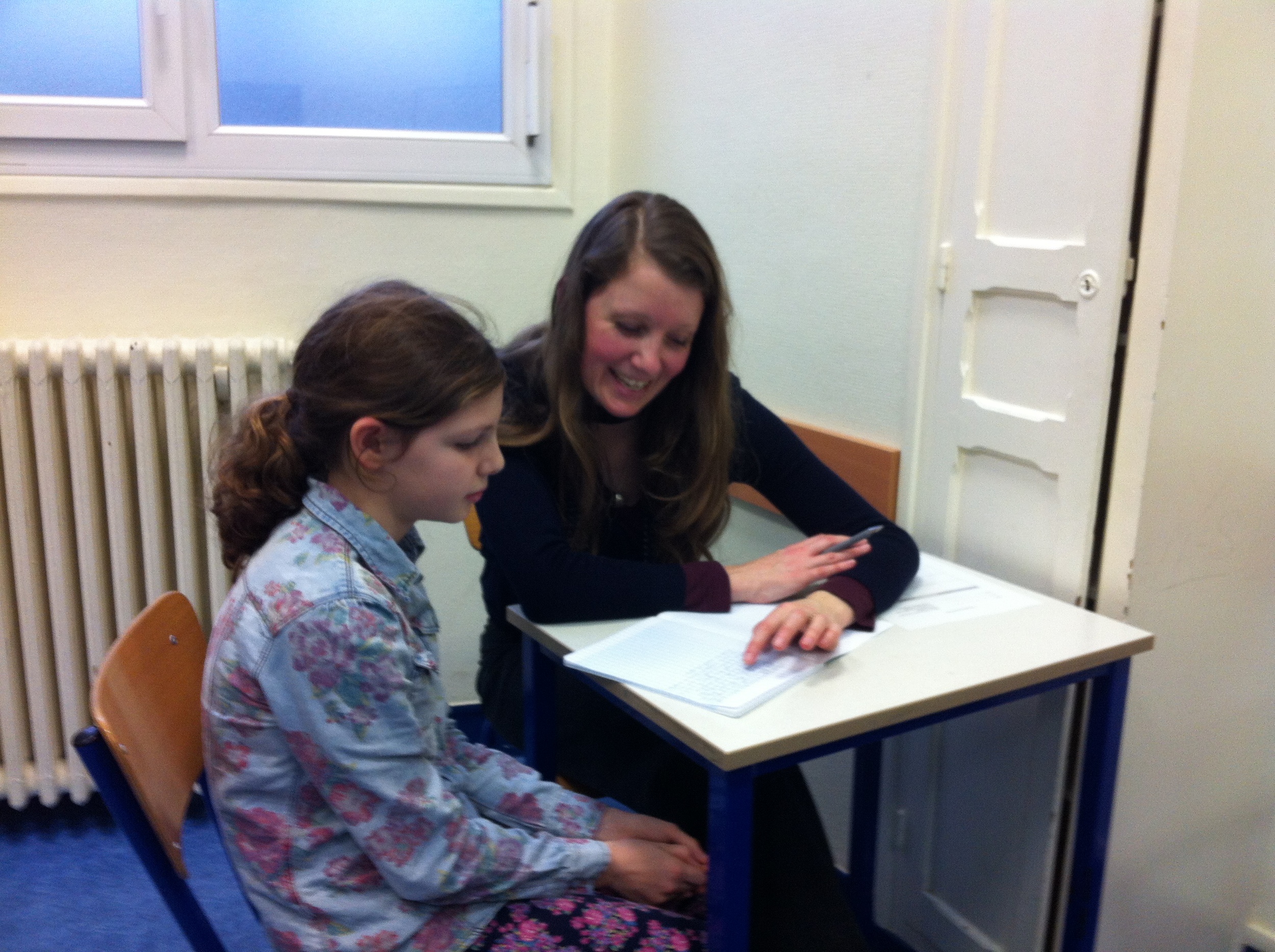Roaming Schoolhouse teachers model the creative writing process for their young authors by writing with them.
It’s creative writing season again! (Isn’t it always?)
Young authors all over the greater Paris area are sharpening their pencils and collecting story nuggets in their writing journals in preparation for the:
2014 Young Authors’ Fiction Festival
co-sponsored by
Time Traveler Tours and the American Library in Paris.
The deadline for YAFF submissions is April 1st (no fooling!). Which means that many young Paris-based authors will have already moved beyond free writing. They may have committed to an idea that they are now drafting into a story, from beginning to middle to end. Or perhaps they have finished their first story draft and are ready to type it out on the computer, thus moving into the revising and editing stages.
If this is the case, they’re probably asking for some guidance right about now, either with the computing process or maybe they want feedback on the writing itself.
If you are wondering how to help your young author, or even if you can, then this post is for you!
Can I, should I, help my young author?
The answer to this question is an unequivocal, “Yes.” It’s okay to offer guidance to your young author. Real working authors seek guidance all the time, from critique partners to agents and editors to family and friends. No writing can mature in isolation. So, please do feel free to help, however,
the key is to not do for your young authors,
but to guide them so that they may do for themselves.
Avoid the knee-jerk grab for the red pen (or any color pen for that matter). Don’t just correct the spelling errors; or tell them when their flow of ideas is illogical and should be moved around; or add whole sentences where thoughts may be missing. Instead, challenge yourself to make each call for support a Teachable Moment, that is, an opportunity for your young author to learn.
Meet them where they are in their own development as literate people, and move them forward from there, one step at a time.
And be ready to accept a “No” if your young author does not enjoy your point of view. The author gets final choice. End of story!
How should I help my Emerging Reader/Writer?
Admittedly, guiding rather than doing is easier said than done, it also saves time to just do. So join me below as I unpack the writing process, by age and writing stage.
In this post, I suggest ways to guide our emerging reader/writers.
In a previous post, I offer tips on how to steer pre-reader/writers through the creative writing process.
My next post is devoted to developing reader/writers.
Emerging Readers
The term "emerging readers" refers to those kids who have “cracked the code” of literacy. That is to say, they’ve discovered that written words are symbols for spoken equivalents and that, strung together, words make sentences and sentences communicate meaning.
These kids are now emerging as readers. They are beginning to read independently, maybe not fluently or fluidly, but with more fluency with each passing day.
And they are excited about it!
They love their new-found independence – at least we hope they do.
They will therefore bridle against any suggestion that they dictate their stories to you as pre-readers will want to do. These children want to write their stories themselves. And this independence is to be celebrated!
Their writing, however, may be fraught with spelling errors, especially if English is not their dominant language of literacy: the language in which they have first learned to read, usually the language of school.
If this is the case, then your young authors' dominant language of literacy will greatly influence (some might say interfere with) their spelling in English. And here’s what I want you to do about it:
Nothing.
Sarah tells this young author what's really working well in his story.
Priority #1: Making Meaning
What’s of primary importance at this stage is that your young authors are keen to experiment and make meaning with language. That they are expressing their ideas, even if their spellings are largely invented.
This is not only okay, it’s great!
Spelling will correct itself over time. For now, leave your young authors to tinker with their inventions. Resist the impulse to start “fixing” things. Rather than help them, this may instead send the message to your authors that they are not capable. It will shut them down, causing their flow valve to snap into the off position. And they may never consider themselves writers again.
This is a very fragile phase in the development of readers and writers. They need to be encouraged for their effort to make meaning at this stage. Because what they’re doing is very hard work.
It takes a lot of mental energy to communicate one’s ideas in words, even for the most literate adult. The last thing an emerging reader/writer needs to hear at this point is what’s “wrong” with their writing.
But how do I make meaning if I can't read the story?
So what to do when you can’t make sense of their finished stories precisely because of all that invented spelling?
Easy.
Ask them to read their story to you.
Your young authors will know what their writing means. And as you listen, read along. You’ll begin to see patterns in their invented spelling and unique grammar constructions. You’ll begin to see the logic behind the apparent madness. You’ll actually see their other language bleeding through.
That’s what I do as a teacher. And that’s how I figure out how to guide each child forward on his or her individual path towards literacy acquisition.
Guiding questions for your ears only...
Now, once you’ve heard the story, congratulate your young author! Focus on the story idea and tell them what you like about it. Tell them what’s working. Something always is.
Then suggest that the two of you type the story up together on the computer. As your author reads, type exactly what you hear. You can guide the bigger picture ideas by keeping the following questions in mind:
What’s missing?
What’s confusing?
What’s not necessary?
What’s not in the right place?





